The eighth session of the 83rd round of Congress 60 workshops in the Academy branch of Congress 60 was administered on December 11th, 2024 at 10 a.m. by Mr. Hossein Dezhakam as the Guardian and Ms. Fariba as the secretary. The agenda was “Opium Tincture (OT)”.
Hello friends, this is Hossein, a traveler. I hope you are all doing well. I am also doing well, thanks to God. Today is December 11th, 2024, and it is five minutes to ten a.m. It was less busy, that is why I came earlier and started the session. Today is Wednesday, our agenda is OT.
Before OT, I want to mention a few points as reminders. The service sheets we have handed out must include the stamp of the agent, border guards, or guide signatures where indicated. Whether companions or travelers, some companions may not have their guide’s signature or stamp. Their agent must stamp their service sheets. For instance, the Academy branch’s agent or any location-specific agent like Sohravardi, must stamp their designated area as required.
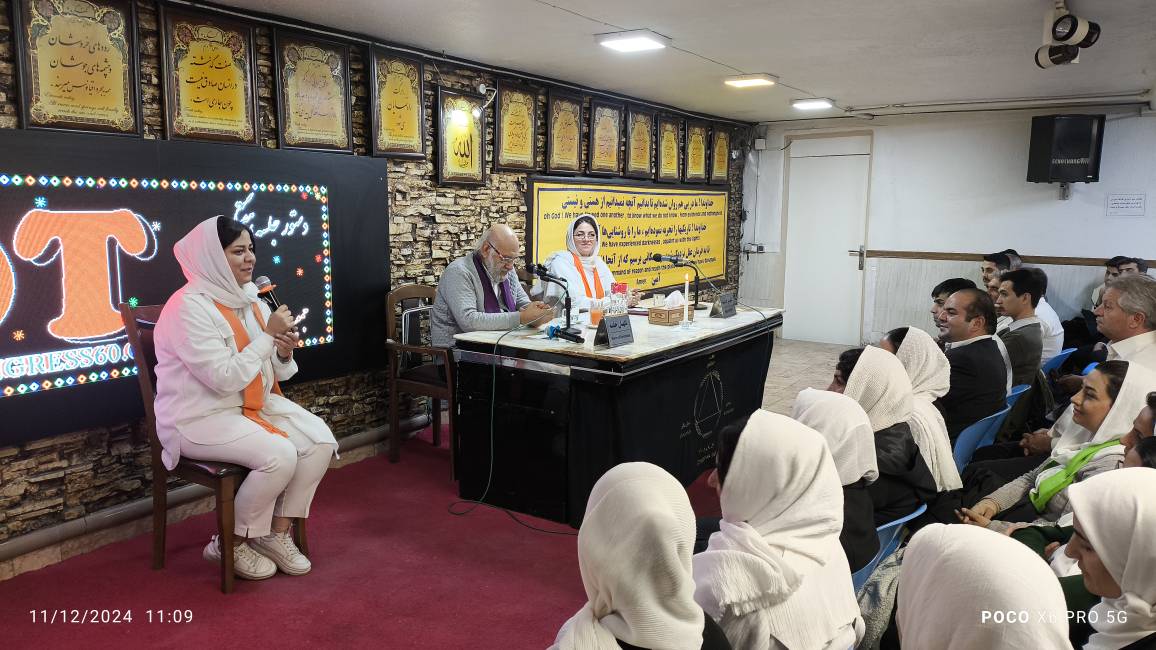
Another thing—someone had filled out the service sheet, but had not participated in the Guidance examination. We had to search through all the answer sheets to find this person’s answer sheet but couldn’t find it. We contacted the guide and others, who confirmed the person had not taken the test. I said, ok, for now, close his guide’s legion until the guide trains their students to be disciplined and orderly. If there’s a discipline issue with the students, we deal with the guide. For first-time travelers, we don’t directly engage with the first or second-journey pupils, but the guides [guides are responsible for whatever their pupils do]. Guides need to be mindful of these matters and handle them accordingly.
If it’s required to include a stamp, signature, or name, it is absolutely necessary to sign it or to stamp it. For instance, for liberation’s order [liberation from addiction]—whether it’s 30 CD, 40 CDs, or cigarettes’ forms—there’s a designated place on these sheets for attaching a photo. If they don’t have a photo, I don’t give the Liberation Order. Why not? Because the pupils need to learn. We are supposed to be trained to complete our work thoroughly. You’ve spent a year working hard to overcome cigarette addiction, but now you don’t have a photo on your file or haven’t transcribed and completed the required 40 CDs. This usually shows laziness or carelessness.
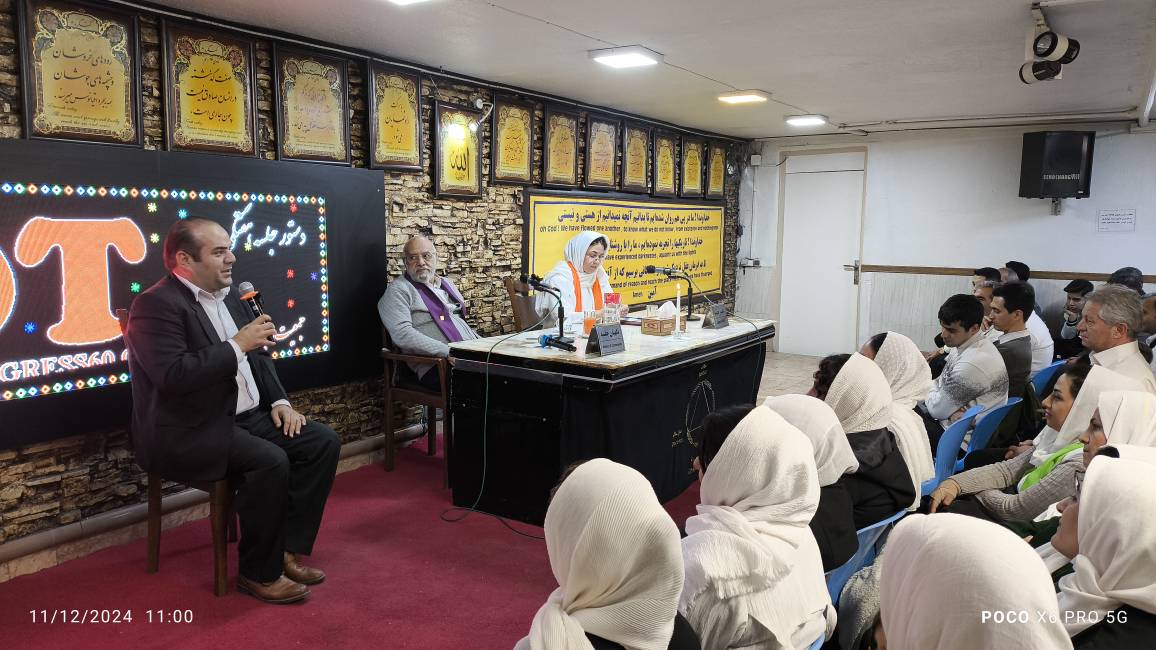
Although, with all the work we do, everything is becoming more complete, organized, and systematic. Praise God, everything is being done very well, and the number of liberations from addiction has increased. Last week, we had 210-212 liberations. In the past, from one Wednesday to the next, there would be only three, four, or five liberations. The numbers have now increased. We added Mondays, then again added Fridays. I think, in the future, we’ll need to issue liberations’ order seven days a week.
Of course, God willing, the more liberations we have, the happier we are, and new branches will be established in various cities. The guides have become very strong, and thankfully, most of the Congress 60 members have awakened from their deep slumber. Both companions and travelers are learning how to balance their lives. They’re avoiding interference in matters that don’t concern them and focusing on their own responsibilities. They’re enhancing their knowledge and strengthening their financial foundations, which are extremely important points.
The agenda of this week’s session is OT. This morning, I saw a document indicating that over 1,370 people are working solely in the OT section. Can you believe it? 1,370 individuals are engaged in managing OT—inputting information into the system, recording OTs, distributing, and executing tasks and supervising the clinics’ affairs.
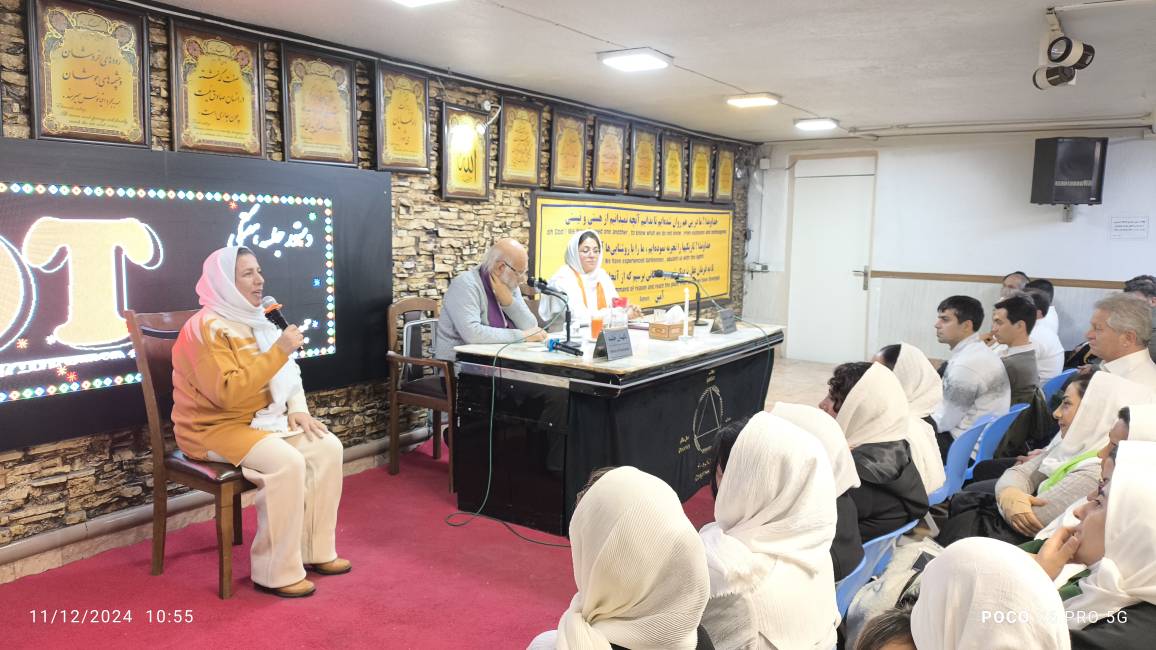
First, we must extend our gratitude to the OT team. The responsibility of OT falls on Babak [the Dideban of Congress 60 responsible for OT], and we genuinely appreciate his efforts. Babak oversees OT affairs, and Tehran’s OT section is supervised by Mahmoud. A heartfelt thanks to him and all the other team members, whose names I may have forgotten or don’t know. I am grateful to all of them. It’s a highly organized, disciplined structure, and I hope it continues in this manner.
The word OT: the "O" stands for "Opium," and the "T" stands for "Tincture," meaning syrup or extract. Therefore, OT stands for Opium Tincture. Scientifically, it was referred to as Opium Tincture or as it is pronounced in Persian /tingtʃr/. To ensure uniformity and ease of communication, we adopted the term OT, combining the initials of Opium and Tincture. Now, it has become customary to simply say OT.
Before transitioning to OT, we used opium directly. The condition back then, when we worked with opium, wasn’t like today. Now, today addiction is recognized as a disease [however, in 1998, addiction was considered a crime]. But now, the Ministry of Health is actively involved in this area, as are doctors, clinics, and medical universities.
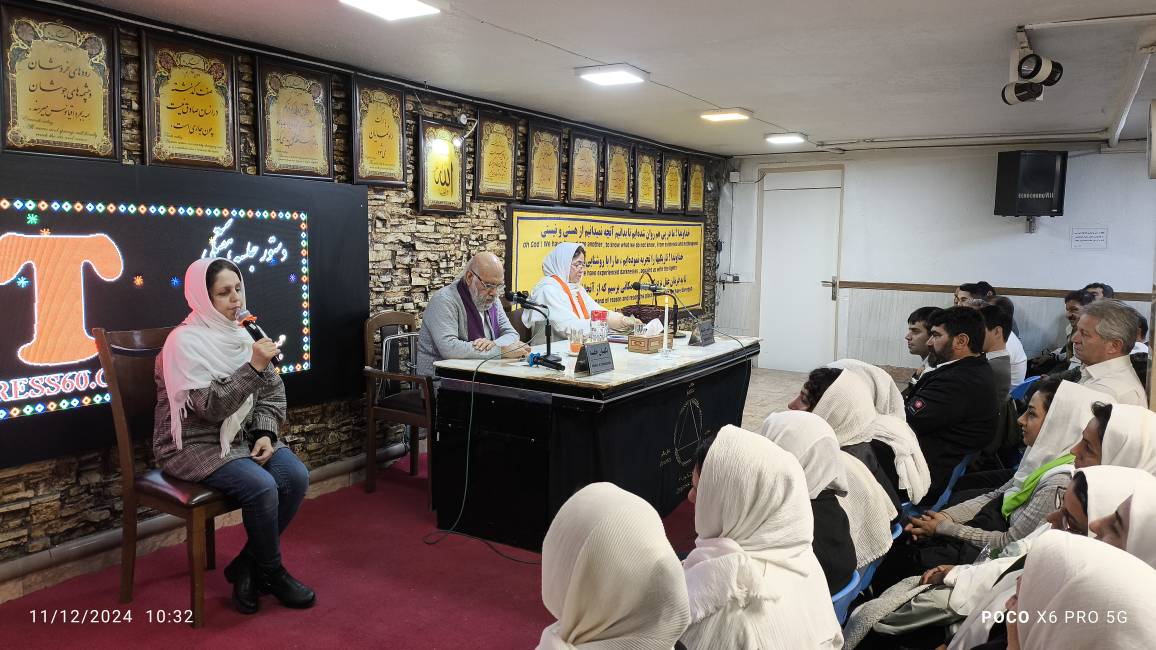
Today, there are thousands of clinics, and addiction is treated as a recognized disease with ongoing efforts to address it. In the past, this was not the case. Back then, the restrictions on opium were extremely severe. There was even a time when the death penalty was implemented for drug-related crimes. For instance, possession of over five grams of heroin was punishable by execution, and the same applied to more than two kilograms of opium. Nowadays, I believe the thresholds are different—perhaps two kilograms of heroin or higher quantities like fifty or a hundred kilograms of opium [receive death penalty]. I’m not entirely sure about the current amounts, but back then, the limit was five grams of heroin or two kilograms of opium, and the punishment was execution.
One day, I was at the Shaghayegh Hall, which belongs to Iran’s Drug Control Headquarters. There was a ceremony there. As I was leaving the ceremony, I saw two people talking. One was from the police force, and the other was a close friend of mine, General Foudazi—may God protect him. He is the head of the country’s drug enforcement agency. He was explaining to the other person, saying, "We should throw all these addicts into the sea. They can't be corrected."
I said, "You’re so heartless."
He asked, "Why?"
I replied, "Why throw people into the sea, the desert, or Qom Lake?"
He said, "Do you know why the punishment for five grams of heroin is execution and for two kilograms of opium the same?"
I said, "No, tell me."
He explained, "Because if someone uses five grams of heroin, they are essentially dead. You must consider them as the deceased. So, if a trafficker distributes five grams of heroin, it's like killing someone. The same logic applies to opium, which is why the punishment is execution."
I asked, "Are you saying anyone who consumes five grams of heroin must be executed?"
He said, "Yes."
I replied, "Coincidentally, we have a ceremony here tomorrow for the Congress 60’s anniversary. Come here, and I’ll show you people who’ve used much more than five grams of heroin and not only survived but are now fully cured."
He said, "Impossible. If someone uses five grams of heroin, his recovery is impossible. They’re dead."
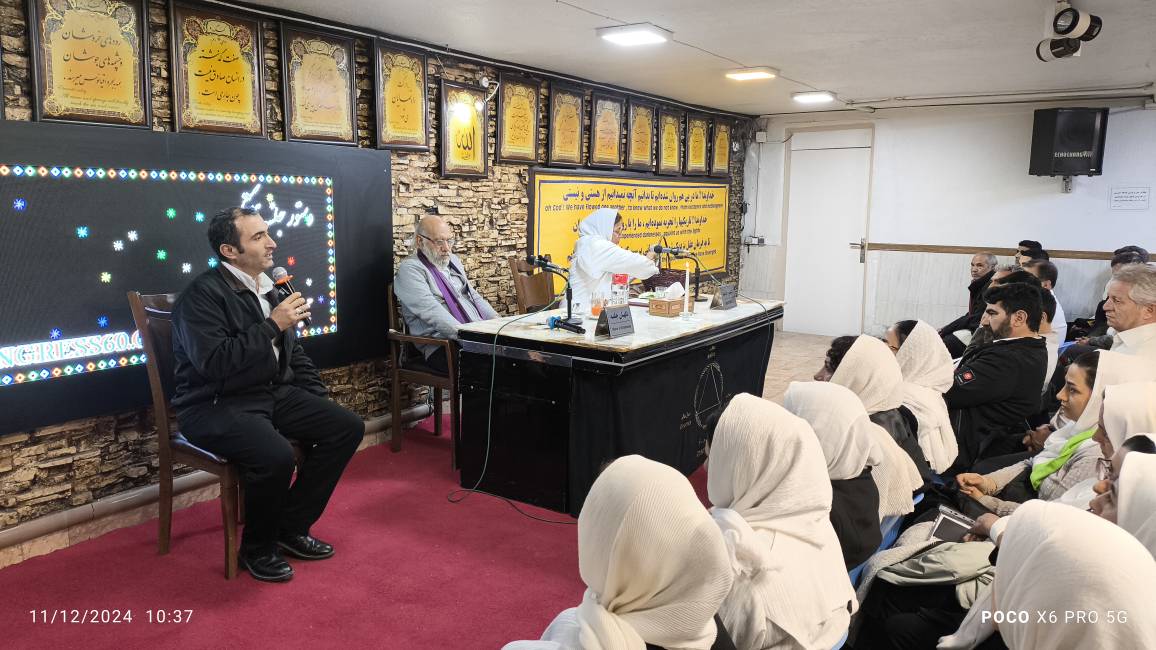
And honestly, he wasn’t wrong. Even today, the whole globe believe that using five grams of heroin is a point of no return [no cure is considered for these people], because no clear treatment method exists. People don’t talk about curing addiction; they talk about something like maintenance therapy or pseudo-treatment. Those who quit often still call themselves addicts for the rest of their life and struggle with withdrawal daily. Or they are maintained on methadone and they don’t believe in complete cure.
I told him, "Come tomorrow night, and if I can prove otherwise, I’ll make you take your words back." He agreed to come. The event was packed with high-ranking officials, and I brought Mr. Khan, Mohsen Khan— the Dideban and one of old members of Congress 60 and a respected figure. May God protect him; he’s a great man.
Mr. Khan was an intravenous heroin user, and now he was completely cured. I called him up to share his story. I asked him, "How much heroin did you use in your life?" He began explaining, saying, “I used heroin for thirty years. I calculated that I’ve used five kilograms of heroin in total, and now I’ve been clean for two years.”
After hearing this, General Foudazi said, "I take back my words, but only under this method—the method you’re using in Congress 60. With other methods, I still stand by my statement."
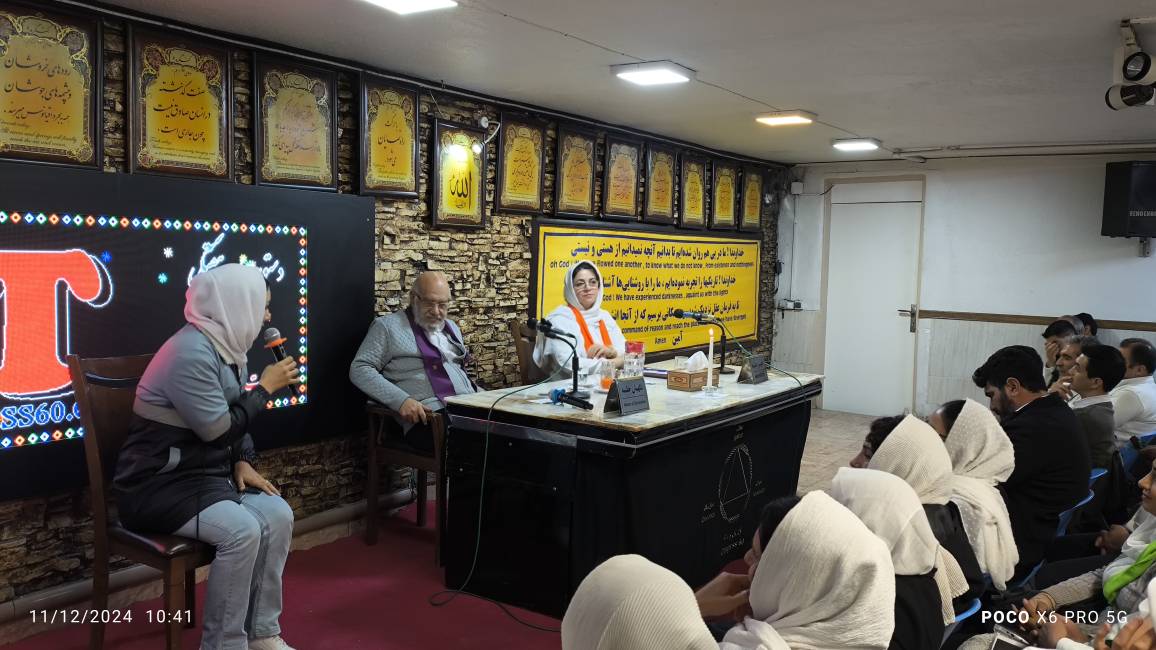
Back in the day, five grams of heroin meant execution, and so did two kilograms of opium. The police had operations called "Val-Adiyat" [والعادیات] named after a Quranic verse “والعادیات ضبها” describing warhorses galloping fiercely, their hooves sparking fire as they charge into battle. You see even its name, [والعادیات], alone was intimidating, and they raided addicts, they stood at intersections and streets.
They arrested me once. They’d round people up, throw them into buses or minibuses, and take them away. They didn’t care if you were a doctor, engineer, or anything else. Around this time, Congress 60 started telling people, "Your treatment is done by opium. Your medicine is opium." Imagine the [harsh] context we were working in—ten years of using opium before OT [opium tincture] even existed.
In that time, Congress 60 members had to buy their opium. There was no OT [OT was not discovered yet by Mr. Hossein Dezhakam]. When they asked where to get it, I said, "Wherever you’ve been getting it until now. If you get caught [by the police], it’s your responsibility—not ours." That’s how it was. Almost all early members of Congress 60 recovered using opium.
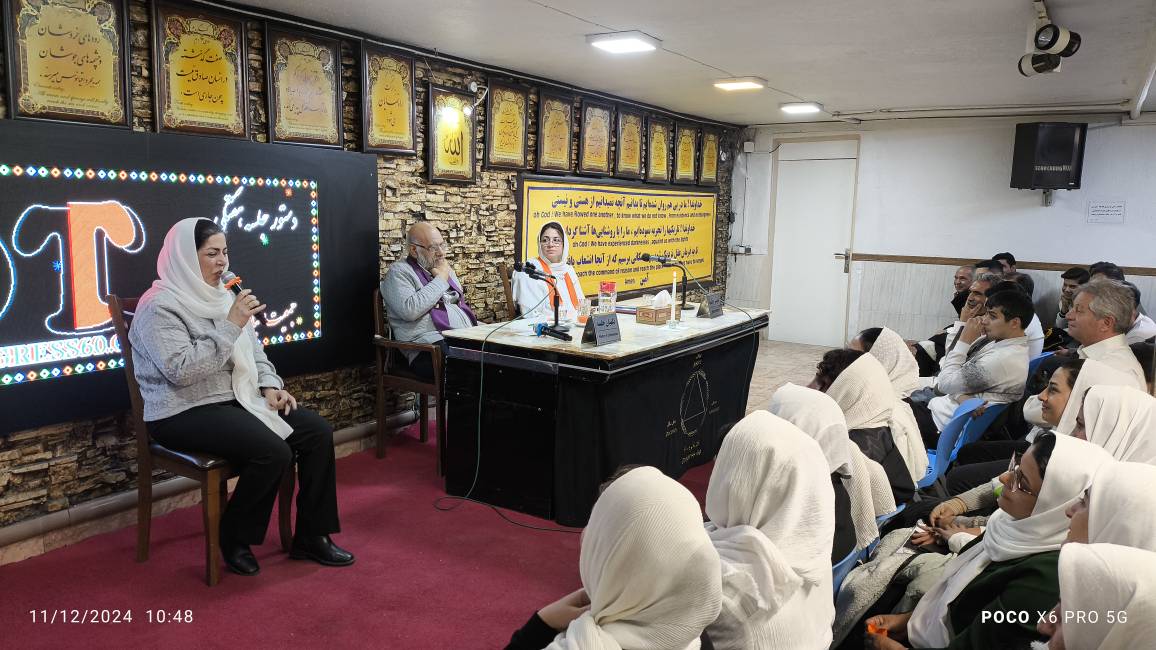
Everyone had small scales like those used by jewelers to weigh gold down to fractions of a gram. People would borrow scales from each other to weigh their opium accurately. Even then, the opium quality varied—one day it was good, the next bad, one day it was pure, the next, it was impure [with lots of cutting agents]. We had lots of troubles every day.
During the ten years we worked with opium, gradually, the authorities began to understand what we were doing. Whose building is this? This building belongs to the Drug Control Headquarters and we were in the same building, under the Office of the President. We didn’t come here initially because of the DST method [we were not honored and welcomed here for the sake of the DST method]; we came for other reasons but eventually stayed. We were operating in the headquarters' building itself, where participants were consuming opium and gradually reducing their intake and everything was monitored by the governmental system.
The then-Secretary-General of the headquarters, Mr. Haj Mohammad Fallah—may God bless him wherever he is—was an excellent man who supported us a lot, supported us a lot. They monitored the situation and observed what we were doing. They noticed that the work being done at Congress 60 with opium was yielding results, and some [addicted] people are cured. As a result, the pressure on us lessened. They didn’t interfere much anymore.
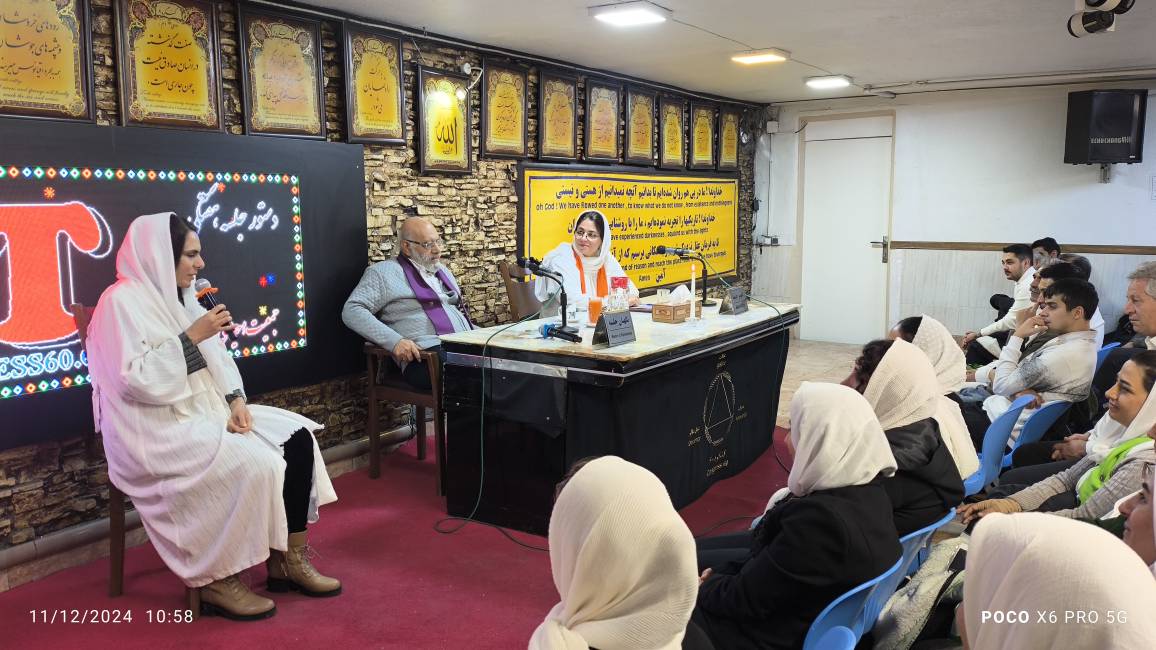
Even when participants were caught with opium and taken to the Revolutionary Court, such as at the Qasr Crossraod court (since drug offenses fall under the jurisdiction of the Islamic Revolutionary Court), we wrote letters to the courts explaining the situation. Often, the judges would drop the charges because they had realized that our work was fruitful and could yield positive outcomes, that is why they waited for our work.
After ten years of working with opium, the opium tincture (OT) was introduced. When it entered the scene, the scientific community was strongly opposed to it. There was even a proposal in 1996 (or around 1998)—I’m not sure of the exact dates) to cultivate “Papaver somniferum” (opium poppy) in the country for medicinal purposes. However, the scientific and medical communities strongly objected.
I remember a meeting in one of the offices where fifty experts were present. I was the only one in favor of cultivating poppies; forty-nine opposed it. Of course, one voice cannot lead against such strong opposition. They didn’t allow it, but I wish they had.
Even today, opium is considered one of the most important medicinal substances in the world, whether we like it or not. Morphine is derived from opium, which contains 3% to 23% morphine. Believe it or not, countries like Germany, France, Spain, and Australia are growing opium poppies. Afghanistan also produces opium, however, compared to the developed countries, the amount of opium produced in Afghanistan is nothing.
The best-selling medicine globally is codeine, which is extracted from opium. Opium contains 0.3% to 3% codeine. Whether we believe or not, whether we accept they cultivate opium or not, dozens and even hundreds of medicines are derived from opium. In hospitals, during surgeries or emergencies like heart attacks, morphine—extracted from opium—is immediately injected to save lives. You can either accept this [truth] or not, whether the medical community accepts it or not, opium plays this vital role. The medical community is to blame, because they think if opium poppies are cultivated, all people will get addicted.
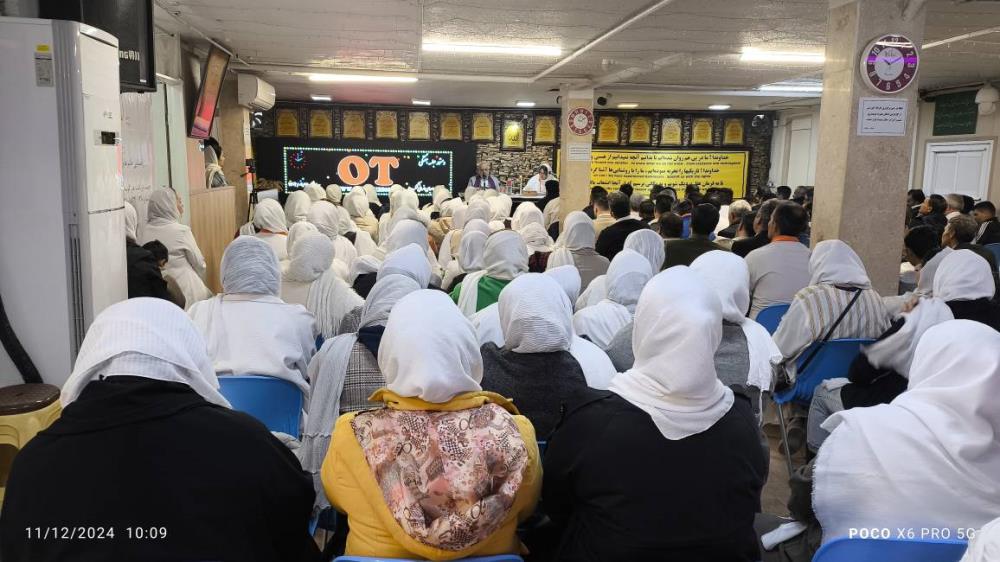
However, addicts already have access to opium. The difference is that since we do not cultivate opium poppies, opium is bought at exorbitant prices, we have to spend our own financial resources and gold to smugglers in neighboring countries to bring their opium here.
Currently, Iran’s opium is of very high quality, much better than Afghan opium, which is merely a last resort. For example, Afghan opium in certain cities is priced at 100 million tomans ($1250) per kilogram, while Iranian opium sells for 200 million tomans per kilogram ($2500). Thankfully, there are scattered efforts to cultivate opium domestically now. Alhamdulillah. Since there was a significant need—factories and industries required it, and we were forced to procure it from other countries at exorbitant prices—it was decided to develop OT (Opium Tincture). The OT initiative was handed over to the medical system, and they had to pilot it. However, when they piloted it, it failed. They couldn't achieve satisfactory results despite all their efforts.
Eventually, we, members of Congress 60, approached the National Center for Addiction Studies. I went there with some others, including Mohammad Sadaghat. He stood at the back of the hall while we discussed the matter. They handed the pilot program over to us. We executed the pilot, in different stages with about 50 to 1,800 participants at each stage, during three to four years. Based on our [successful] implementation of this project and because of the influence of higher authorities supporting the initiative, the Ministry of Health acknowledged that OT could indeed be effective for addiction treatment.
During the tenure of Mr. Ahmadi-Moghaddam as Secretary-General of the Drug Control Headquarters, and his deputy, Dr. Jahanshahi—who remains in his position—considerable efforts were made to incorporate OT into the country’s list of approved medications. Despite strong opposition, Opium Tincture was accepted as a medicine. Mr. Taheri, an official from the Drug Control Headquarters, once mentioned that the sole reason that persuaded us to accept OT as a medicine, was Congress 60 members [who were successfully recovering and standing strong]; this way, OT was officially accepted as a medication.
When OT became part of the treatment system in this way, clinics initially refused to adopt it, lacking the expertise to use it. Now, ironically, every clinic competes vigorously to obtain OT. Unfortunately, a significant misstep occurred that disrupted the overall addiction treatment framework in the country, not for us. The protocol we had established during the pilot phase was completely different from the protocol they wrote, our protocol was changed [by the medical authorities]; and without consulting us, they prepared a new version of protocol based on their [insufficient] information. Their revised protocol deviated significantly from the one we had piloted, which led to many inefficiencies and this faulty protocol was registered and Congress 60’s protocol was not implemented. If they had based the final protocol on our pilot, addiction treatment would have been much more effective today, and accessing OT would be far easier.
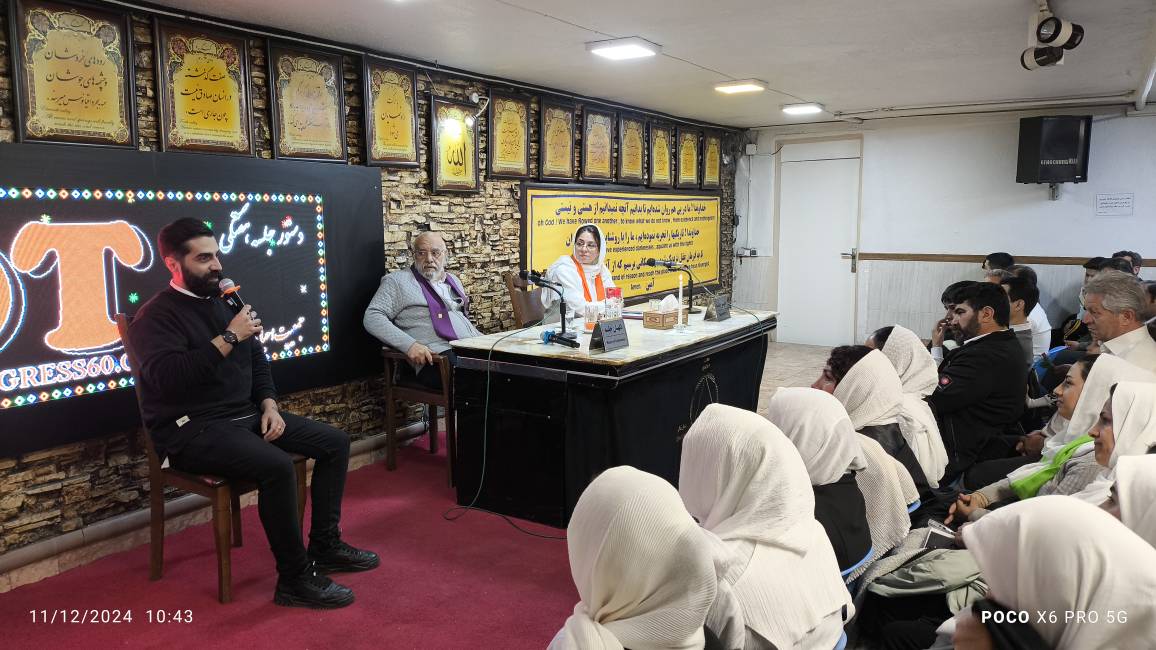
Despite these challenges, OT is a highly healing medication, and we are all using it. Over the past 26 or 27 years, we've worked extensively with it and have not seen even one single case of overdose of OT, and I’ve documented this [truth] for Mr. William White, noting that in all my time with Congress 60, I’ve never encountered a single case of overdose among those using OT.
Overdose, or "OD," occurs when someone consumes a substance, like heroin, in an amount that exceeds the safe threshold, leading to potentially fatal outcomes. We’ve seen numerous overdose cases with methadone and other medications. However, no instances of overdose and death have been reported with OT among Congress 60 members, [which is a testament to its safety and the structured approach we’ve implemented].
For the past 26-27 years, we haven’t had a single overdose case because the members have learned how to properly use the medication. For instance, if someone uses 0.3 cc of OT and wants to overdose or increase their dose, they might go up to 0.4. They wouldn’t jump to consuming 2cc because they know it would completely knock them out or even destroy them. That’s why we’ve had no overdoses.
For example, in the protocol that has been provided for addicts, it was written that a pregnant mother with addiction must be given methadone. However, in my opinion, methadone is like poison for this mother. The only thing they should consume, especially if they were using opium before, is the opium tincture (OT). Methadone would ruin her. Or if they have a heart condition and were using opium before, they should also use OT. Using methadone in such cases can be extremely dangerous. However, the protocol wrongly states that people with heart conditions shouldn’t use this, and pregnant women also shouldn’t consume it. That is why I said unfortunately, the protocol has been poorly written and flawed.
Nevertheless, this has become a medication now available to us. The Drug Control Headquarters collaborated with us greatly, enabling the cycle to be established. Even the Ministry of Health collaborated a lot. Initially, they believed this was useless, inappropriate, or ineffective. But now they’ve come to believe that it can be an extremely effective medication. We hope that one day we can cultivate opium poppies in our country, both for medical purposes and for various pharmaceutical factories and applications. Many medications are derived from opium, and access to opium would ease their production. It could also be used as OT for addiction treatment.
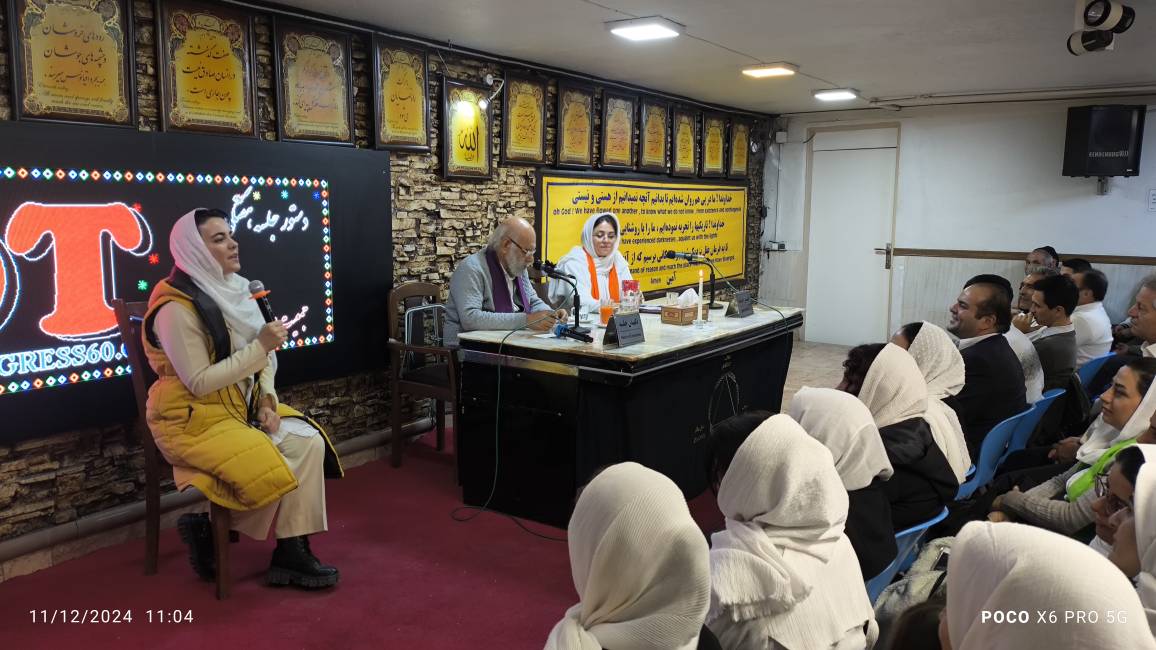
I don’t believe that cultivating opium poppies in our country would drastically increase addiction rates. The destruction caused by addiction isn’t just because someone has to smoke it. The least harmful aspect is that an opium user has to sit down two or three times a day to smoke. The problem arises when opium becomes expensive or inaccessible. A taxi driver, for instance, might want to use opium but finds it too costly. He increases his fares disproportionately. A truck driver might do the same. Sometimes, people turn to theft to cover the cost of their addiction. But when something becomes legal, accessible, and affordable, I believe the destructive effects of it [opium] would significantly decrease.
Regarding OT, I hope all of you will discuss it in this week. There are observers in clinics working and writing [each persons’ amount of required OT] on the yellow sheets. Some of them wanted to replace the yellow sheets with computerized records, but I opposed it, saying that the current system creates jobs. Those working with OT are serving people, which benefits themselves as well. We need to maintain service positions and act as entrepreneurs, creating opportunities rather than reducing them. Service is an integral part of the treatment process and is highly beneficial to individuals.
All OT records are preserved and archived. We keep a copy of each patient’s treatment records and follow-ups in their local branch and at our central office of Academy Branch of Congress 60. This allows us to carry out research or reviews dating back 26-27 years. All the paper documentation exists as credible evidence for research and study. I still say that if anyone [in the world] has a cured case similar to what we’re doing, even one single case, they can bring it to us. I ask all the scientists to gather and present just one cured case with no cravings, no tendencies to addictive drugs—the one with no other problems— then you see the miracle of OT.
We might use the DST method with methadone and achieve results, including reduced substance use and eventual cessation. But the health and recovery in a person, and the reconstruction of their gene expression that happens with OT, cannot be achieved with methadone. I am fully confident that in the coming years, OT or opium-tincture will have substantial medical applications. Opium is like a jewel or gold. Imagine turning gold into something as trivial as a water can or ladle. Using opium for smoking or producing heroin is like making pots and pans from gold instead of a golden necklace. It’s a waste of a valuable resource.
Opium should be utilized in top-tier medical applications, not smoked or converted into heroin. It has the potential to address the roots of diseases by balancing the system. Many illnesses arise due to epigenetic factors—gene expressions that go out of balance. With the DST method and the DOD triangle, these can be regulated and brought back into proper order.
I’ve given many lectures about this in the U.S. Occasionally, we publish these insights on Congress 60’s websites, demonstrating how OT has been used for various genetic regulations. In conclusion, I’d like to once again congratulate and thank all the OT practitioners. May God grant them strength. Thank you for listening to my words.

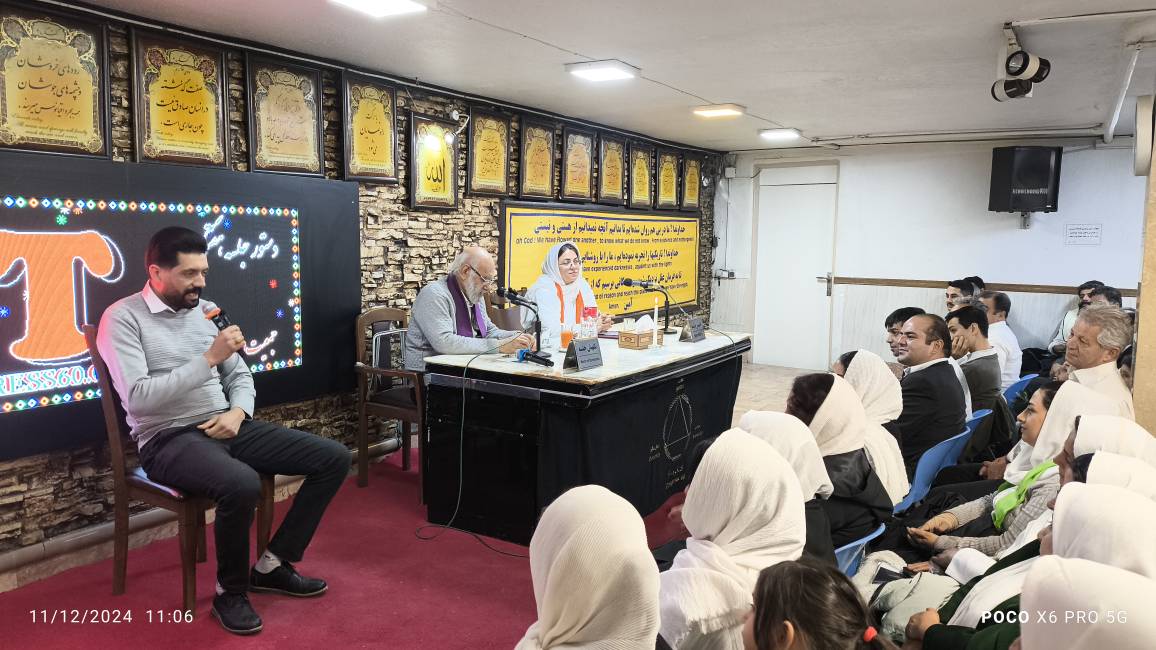
Translated by Elahe
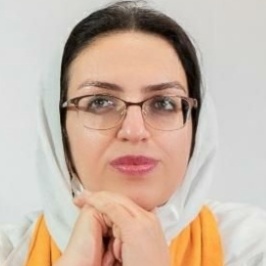
https://congress60.org/News/369752/%DA%A9%D8%A7%D8%B1%DA%AF%D8%A7%D9%87-%D8%A2%D9%85%D9%88%D8%B2%D8%B4%DB%8C-%D8%AC%D9%87%D8%A7%D9%86%E2%80%8C%D8%A8%DB%8C%D9%86%DB%8C-OT